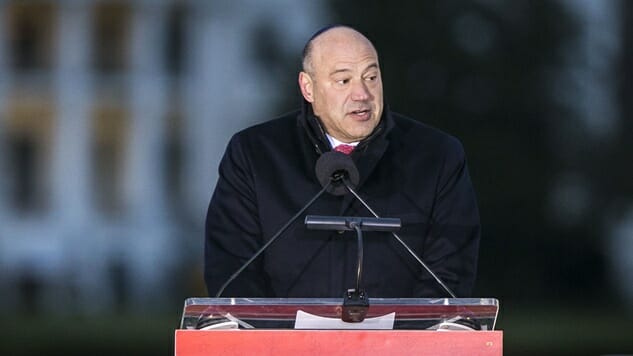Gary Cohn’s Exit Empowers and Furthers the Conservative Economic Divide
Photo by Al Drago/Getty
When news of now-president Trump’s now-former top economic advisor Gary Cohn’s resignation broke, no one was surprised. His exit had been rumored for some time. He threatened to leave last summer after the president took two days to condemn those who took part in a white supremacist rally in Charlottesville, Va., that left one woman dead. Cohn ultimately stayed in the White House’s employ, but his desire to remain in his position was questioned again after Trump’s decision to impose tariffs on foreign steel and aluminum. Now, as he becomes another in a long line of Trump flunkies to jump ship, he takes with him a key voice of opposition to the president’s trade policies that resulted in a schism between Trump and the conservative establishment.
Congressional Republicans moved quickly to criticize the president’s decision, which was made without internal discussion or support, arguing that it threatened to “undercut” the supposed good that December’s massive tax legislation would bring, severely hampering their ability to use it as a positive campaign platform during the 2018 midterm elections.They aren’t wrong. The blanket tariffs would affect businesses and consumers alike, much like tariffs implemented under previous administrations did, and, more importantly, provide the spark for an international trade war between the U.S. and the rest of the world. The European Union has already threatened retaliatory taxes on American exports, such as oranges, bourbon and Harley-Davidson motorcycles, in remarks that accurately referred to the entire process as “stupid.”
-

-

-

-

-

-

-

-

-

-

-

-

-

-

-

-

-

-

-

-

-

-

-

-

-

-

-

-

-

-

-

-

-

-

-

-

-

-

-

-








































